One of the very best motorsports journalists India has ever seen, Vaishali worked for leading publications like Autocar India, Business Standard Motoring and Overdrive, when she was based in Mumbai. Having moved to Germany a few years ago and now based in Berlin, she continues to write as a freelance journalist and has also branched out into video work for Deutsche Welle. We caught up with Vaishali for a quick chat about her work in journalism, her love for motorsports, and her favourite books and authors.
Let’s start at the beginning. Did you always want to be a journalist? What was it that attracted you to journalism in the first place? How has the formal study of media/mass communication helped you in your work as a journalist?
I can’t say that I always wanted to be a journalist, but I can say that I always wanted to write. Growing up in Bangalore, books were in no short supply in our home. And my parents, both of whom read, always encouraged my sister and I to read. I’m fairly certain most birthdays involved presents of books, and as we grew older, my Mum would always recommend certain books for certain times in our lives. I suppose the truth is I got caught up in the magic of words and the world of storytelling at a very young age, and a career that would allow me to explore both seemed inevitable.
The media course in Mount Carmel College (then called a degree in Communicative English) was instrumental in my career. My writing teacher in college has been a huge influence in my work – I can count on her for honest feedback about anything I write even today. And if it hadn’t been for that degree requiring internships, I might not have ended up spending two months in the summer of 2006 interning at Overdrive. I shan’t ever get over the thrill of that first by-line in the magazine and in the Grand Prix special edition.

From Bombay to Berlin, from motorsports and automotive journalism to, now, also many other forms of writing, and from print media to video. What have been some of the most significant highlights of this 15-year journey? Also, what are your views on how the rise of the Internet has affected traditional print media, especially special-interest magazines?
I’m not sure if these count as highlights, but they meant a lot to me. Getting to interview Michael Schumacher (who despite some misdemeanours will always remain my favourite Formula 1 driver of all time) at the Indian Grand Prix in 2011 is right up there. Getting to drive the Lotus Renault E20 Formula 1 car at Paul Ricard in 2018 is a moment that is still so surreal I can barely believe it happened. And having some of my writing recognised by the Guild of Motoring Writers in 2018 and 2019 made me feel like a little less of an imposter.
When I first began writing for a magazine in 2008, people still bought magazines. That number has declined steadily over the years, and I suspect most niche magazines can no longer survive on subscription and ad-sales revenue alone. Hence the rise of ‘paid partnerships’ and ‘advertorials.’ People also seem less inclined to pay money to read quality writing and journalism, since there is a lot of material available to read online for free. I think the internet and social media have given people the freedom of choice in terms of what they can read or view. But they’ve also brought with them dramatically lower attention spans, susceptibility to the dangers of the filter bubble, and a fair amount of misinformation. One of the things that strikes me quite often is that we ‘read’ ‘stories,’ but we ‘consume’ ‘content.’ One requires more commitment and involvement than the other.
I think it’s been hard for a lot of traditional journalists to adapt to the rapidly changing media landscape, but a lot of them have, and some have done so very well. Take Faye D’Souza’s Instagram news service for instance. I think the tricky thing is holding true to what you stand for as a journalist as you evolve to embrace new media. It’s not easy.
I’m not cynical enough to believe young people don’t want to read. I think most of them read far more than their parents do. But does the average fifteen-year-old today read as much as the average fifteen-year-old in 1990? I can’t say that I have the definitive answer.
Print magazines and newspapers will still be around ten years from now. In some cases, print won’t be the only vertical a media house has. In other cases, where print is the only vertical, volumes will be lower and prices for subscriptions much higher – niche publications might survive and hopefully thrive like this.

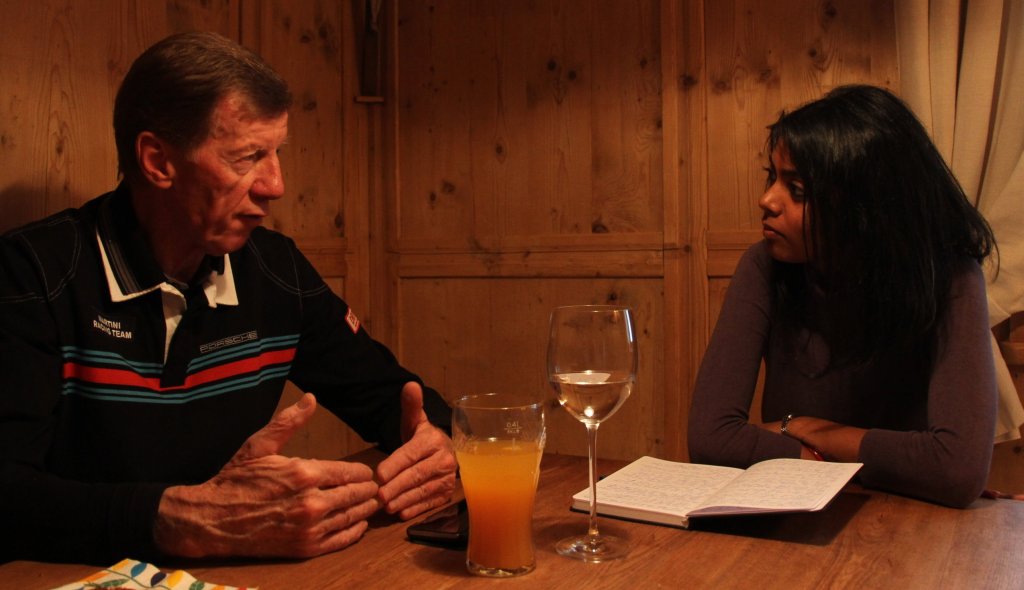
When you were in India, you were the best motorsports journalist in the country, with the best, most articulate, most well-informed writing by far. Tell us about your love for motorsport. Would you like to name some of your all-time favourite motorsports heroes?
That is high praise, that I’m not sure I’m deserving of. Nonetheless, thank you. I think my love for motorsport is in no small measure linked to Michael Schumacher and that era of Formula 1 to which he belonged. But it’s also rooted in my love for storytelling. The protagonist in every story goes through what Joseph Campbell called ‘the hero’s journey.’ Well, nearly every race weekend I sat and watched parts of those journeys. That tied into my desire to write and to tell these stories.
In my years writing about motorsport, I interviewed many people, with many interesting stories to tell. But what I learned I enjoyed the most was thinking of motorsport as a study in human motivation – what made them do the things they did. What motivated them to move past fear, circumstances, pain? And, all other factors being equal, what made some people inherently better than others at the very same thing? Finding these answers has been very interesting. Whether these answers came from Ari Vatanen in France or Somender Singh in Mysore was immaterial. The perks of getting to travel the world, meet people I respected and admired, drive machines I have no business being let near, and go on an odd adventure or two has been immense fun too.
It’s really hard to pick motorsport heroes… But Schumacher, Lauda, and Moss are right up there. When it comes to rallying, I’d say Walter Röhrl and Ari Vatanen. And boy oh boy did I feel vindicated after each one of Takuma Sato’s Indy 500 victories. I don’t think he counts as a hero, but I certainly have been a loyal supporter over the years.
Now that you’re based in Berlin, how would you say is motoring / motorsports journalism in Europe different from the way things are in India? You now do a lot of video content for DW. For you, personally, how is that different from print journalism?
I’d say motorsport journalism in Europe still seems to be viable, and in some cases healthy. I see some magazines going strong (AutoHebdo in France for example), and there are some really good new media outlets too. A friend recently turned me onto Dirt Fish’s YouTube channel – their WRC coverage has been exceptional.
Adapting to video has been challenging, but I’ve enjoyed learning things along the way. I find it easier when I’m behind the camera, telling someone else’s story. Being in front of the camera and sometimes part of the story has definitely been trickier for me. What I have learned though, is that writing is still the backbone of everything. And when you tell a story without a strong script, it becomes apparent.
Did you always read a fair bit, even when you were in school/college? How have your reading preferences changed and evolved in the last 10 years? What kind of books do you read now? Favourite authors? Any favourite Indian authors?
My sister and I grew up on a steady diet of books. My parents (and aunt) bought us everything from Spider-Man, The Legion of Superheroes, Phantom, Mandrake, and Archie comics, to the works of Enid Blyton, Frank L. Baum, L.M. Montgomery and more. As we grew older, we began reading the books our parents read. My Mum even briefly owned a bookstore, and I’d help myself to its stock rather often. Writers I liked in college (and still like) were Haruki Murakami, J.D. Salinger, Kurt Vonnegut, and Nevil Shute (one of my Mum’s favourite writers, although some of his writing can be seen as problematic today).
I suspect I like literary fiction more than anything else. Favourite authors – that’s a dangerous question since I’ll regret leaving someone out. But I do fall back on old favourites like James Herriot – who is an excellent writer, and his tales of life as a vet in Yorkshire in the 1930s never ever fails to cheer me up. And there’s nothing like P.G. Wodehouse to perk up a dull day. Indian writers I think more people should read – Kala Krishnan Ramesh, Kalpana Swaminathan, and Vivek Shanbhag.
There was a time when I’d go through a fair few spy novels and Westerns, but I’m less likely to pick them up now. I do read a lot of children’s books, old and new. And I have a fondness for children’s picture books too. I can’t break the habit.
Do you like to read books pertaining to cars and/or motorsport? Any particular favourites in that space? Any authors whose work you particularly enjoy reading?
I do like motorsport books quite a lot. Richard Williams’ The Death of Ayrton Senna, Gerald Donaldson’s James Hunt: The Biography, David Tremayne’s The Lost Generation, Steve Matchett’s The Mechanic’s Tale, Chris Nixon’s Mon Ami Mate are all excellent. Di Spires’ I Just Poured The Tea is a fun read about tales from her time as a paddock caterer. Mark Gardiner’s Riding Man is excellent for people who want to go out there and live their racing dreams. Stirling Moss’ All But My Life paints a picture of motorsport and life in an entirely different time. And Ari Vatanen’s Every Second Counts is essential reading for any athlete overcoming a mental hurdle. There’s also Peter Egan’s motoring writing, which brings me great joy.
What are the two or three most memorable books you’ve read in the last 1-2 years? Any books (whether motorsports-related or otherwise) that you are particularly looking forward to reading in 2023?
Books I’ve read in the last few years and am happy to recommend to people:
The Door. The author Magda Szabo is a Hungarian treasure, and I wish more people would read her. It is a tale about class and friendship, told with an intensity that very few writers can manage. Speaking of Hungarian writers, Antal Szerb’s work is excellent too.
Fried Butter. Abe Opincar’s food memoir, in which he recounts various experiences he’s lived through, with food tying it together. It is nothing like today’s food blogs. He’s a masterful memoirist.
The Buried Giant. Kazuo Ishiguro’s novel about the persistence and the fading of memories.
The Neapolitan Quartet. I was probably late to the Elena Ferrante party, but I’m still processing what these books made me feel.
He is Honey, Salt and the Most Perfect Grammar. Kala Krishnan Ramesh’s volume of poetry, in which she explores the relationship between a poet and her muse, in this case, Murugan the god of (amongst other things) poetry.
Ghachar Ghochar. Vivek Shanbagh’s story of familial chaos says so very much in so few pages.
Spider-Man: Blue. By Jeph Loeb and Tim Sale, which isn’t something I discovered recently, but is a comic book I keep returning to. If anyone has experienced any manner of loss in their lives, this book will have an impact on them. I daresay it might prove cathartic.
Fables. Bill Willingham’s comic book series begins in Fabletown (a borough in modern day New York), where the characters from our favourite fairy tales have taken up residence after being defeated by the mysterious ‘adversary.’ And then it goes on a fantastic journey that involves politics, wars, love, death, and all sorts of excellent things you’ll never see coming.
I’m already afraid I’ve left out a lot of good writers and a lot of excellent books. But this will have to do for now.
Do you still visit bookshops or do you do all your book buying online? What is your take on newer formats like eBooks and audiobooks, and devices like the Kindle?
I do visit bookstores. Another Country, Dussmann, and Hundt, Hammer, Stein are my favourite bookstores in Berlin. I always go to Bookworm and Blossom on every trip to Bangalore. Search Word was an old favourite in Bombay, although I’m told it no longer exists.
I’d take an actual book over an eBook any day. But I do have a Kindle, and find it can be handy when I travel. I believe print books will survive. I do.
Do you collect books? Are you very possessive about your books? Do you have anything to say to friends who borrow your books but never return them?
I collect books – I find it hard to pass up on buying old editions of books that I love. Cover art plays a role in my purchase decision – so I’ll end up buying Murakamis with Chip Kidd’s cover design even if I’ve got some other edition at home already. I’ve even got four of the William books by Richmal Crompton in Swedish. They were beautiful hardcover copies that I found in an old antique store, and I simply had to have them.
I am very possessive about books, I hate lending them. There are very few exceptions to the rule, and it’s been that way since I was around five, when my Dad’s colleague borrowed two books from the family library and never returned them. We never found those same editions ever again.
My advice to anyone who can’t or won’t buy books is to get yourself a library membership. You won’t regret it. And I won’t either.
adventure advertising Allahabad Apple astrology audiobooks Banaras best-of lists Bombay book marketing business Calcutta cheap reads cityscapes corporate culture design fiction food Hinduism hippies history India Japan journalism journalists libraries literary agents memoirs memories money Mumbai music my life with books Persian photojournalism Prayagraj publishers publishing science-fiction self-help technology travel trends Varanasi wishlists
More Stories:
My Life With Books: Arunima Mazumdar
Delhi-based Arunima is a marketing and communications specialist with over 15 years of experience across journalism, publishing and digital advertising. Currently a senior account director with Moe’s Art, she has earlier worked with Doordarshan News…
My Life With Books: Sachin Rao
Based in London, Sachin is a commercial features Editor at Guardian News & Media. One of the best writers/editors in the business, he has worked in the UK since the mid-2000s. Before that, he was…
My Life With Books: Srinivas Krishnan
A legend in his own lifetime, Mumbai-based Srinivas has been an automotive person in the communications business or a communications person in the automotive business all along – advertising, journalism, corporate and public relations. He…
My Life With Books: Avik Chattopadhyay
Gurgaon-based Avik is a senior automotive industry professional who’s worked with Maruti Suzuki, Apollo Tyres, PSA Peugeot Citroën and Volkswagen among others. In recent years, he’s struck out in new directions and is co-founder at…
My Life With Books: Dr Radhika Praveen
With a PhD in creative writing, Dr Praveen is based in Milton Keynes, in the UK, where she lives with her husband and two boys. She misses her life in India where she hopes to…
My Life With Books: Marco D’Souza
Based in Gurgaon, Marco is a career journalist who jumped to corporate communications and now works for Google. A consummate geek and a fan of eBooks and the Kindle Paperwhite, he loves rediscovering the wonders…

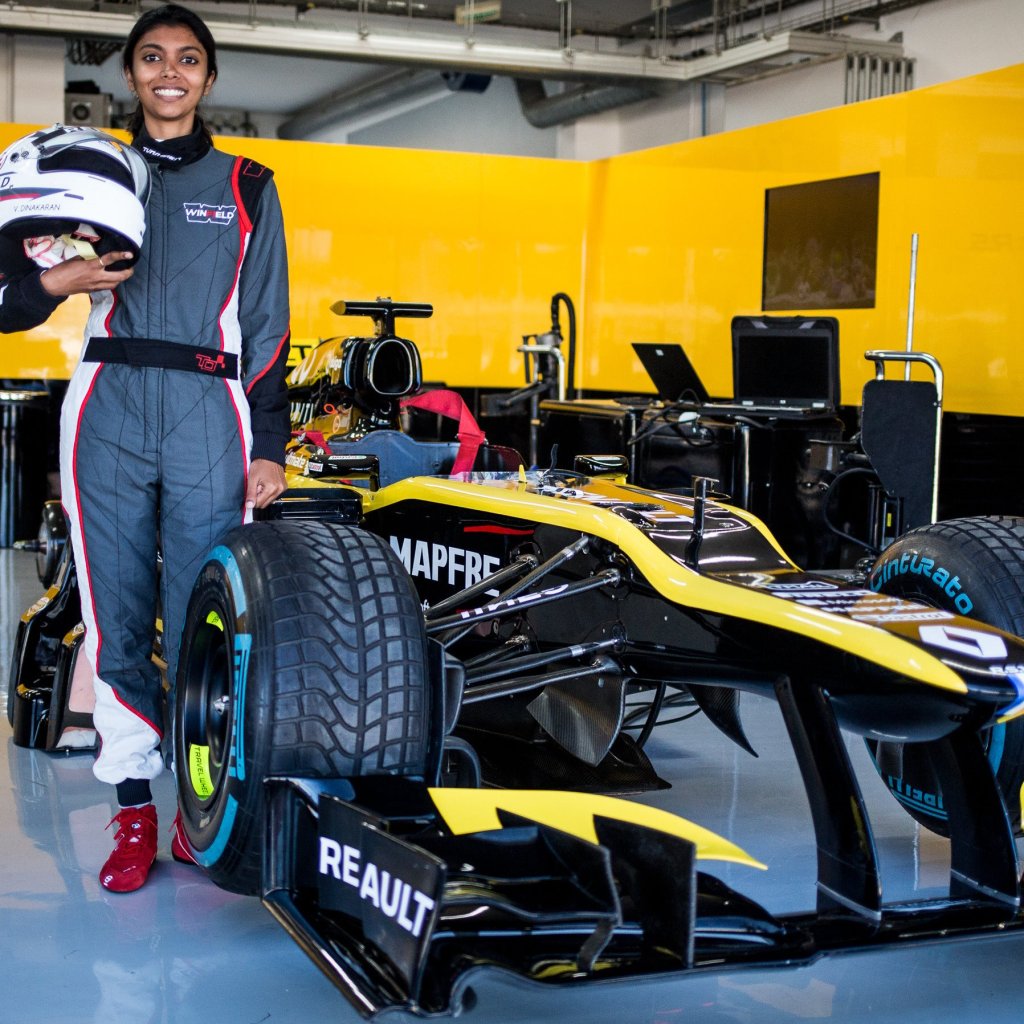
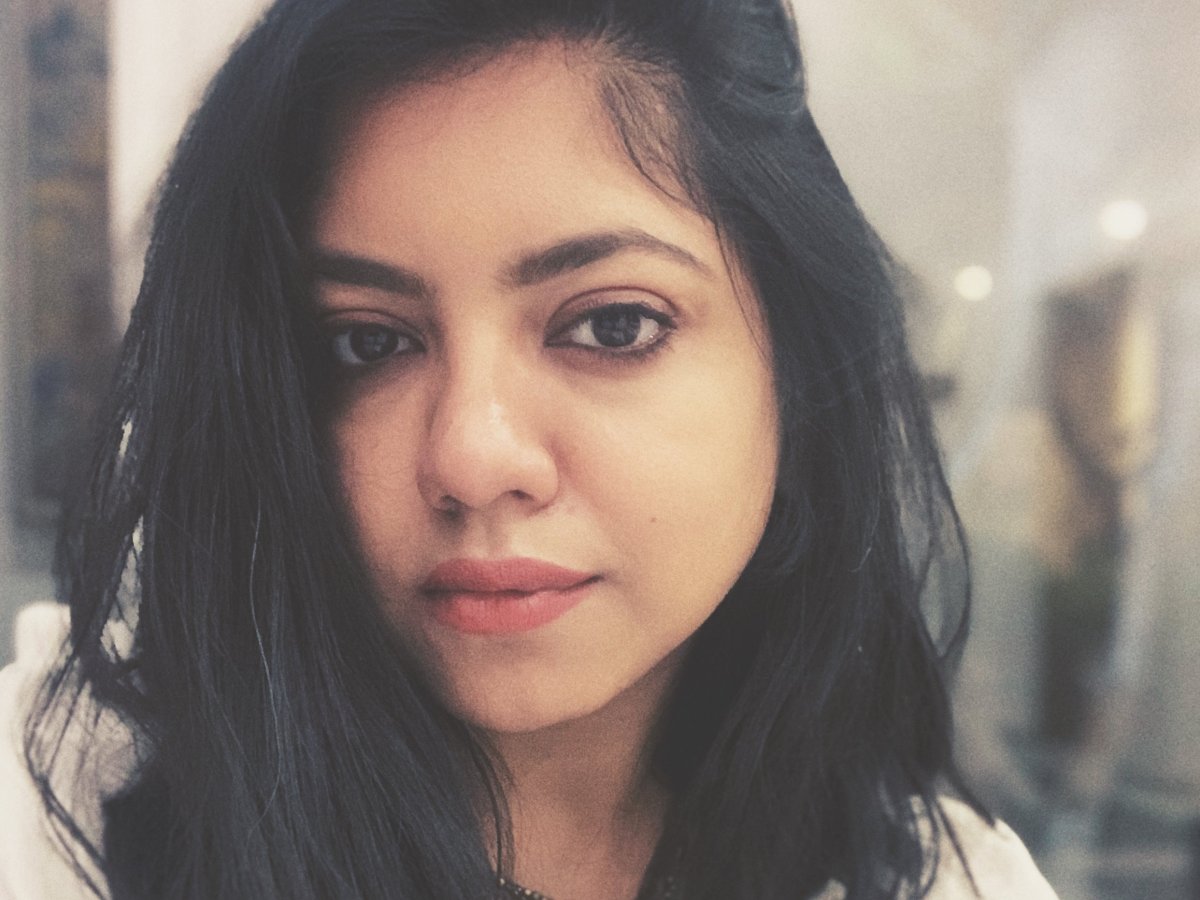
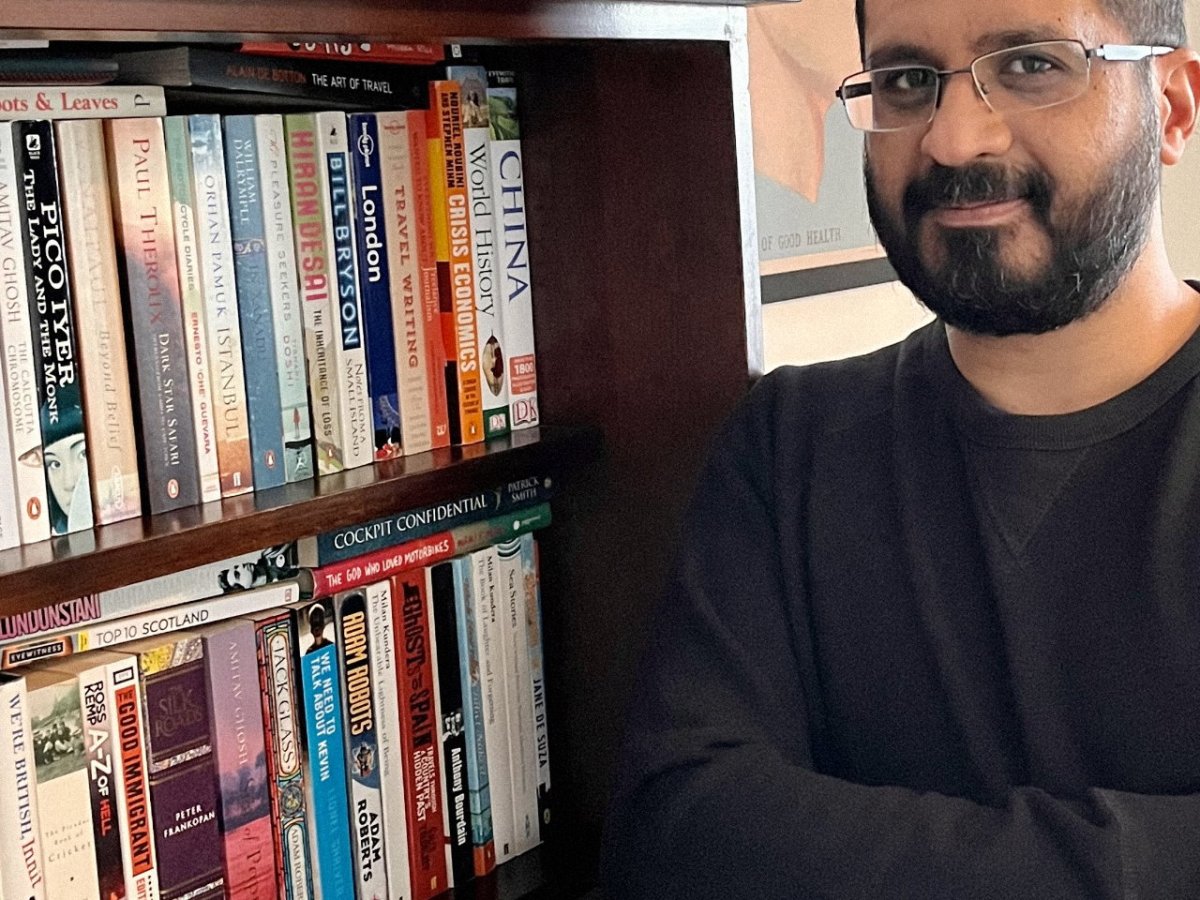
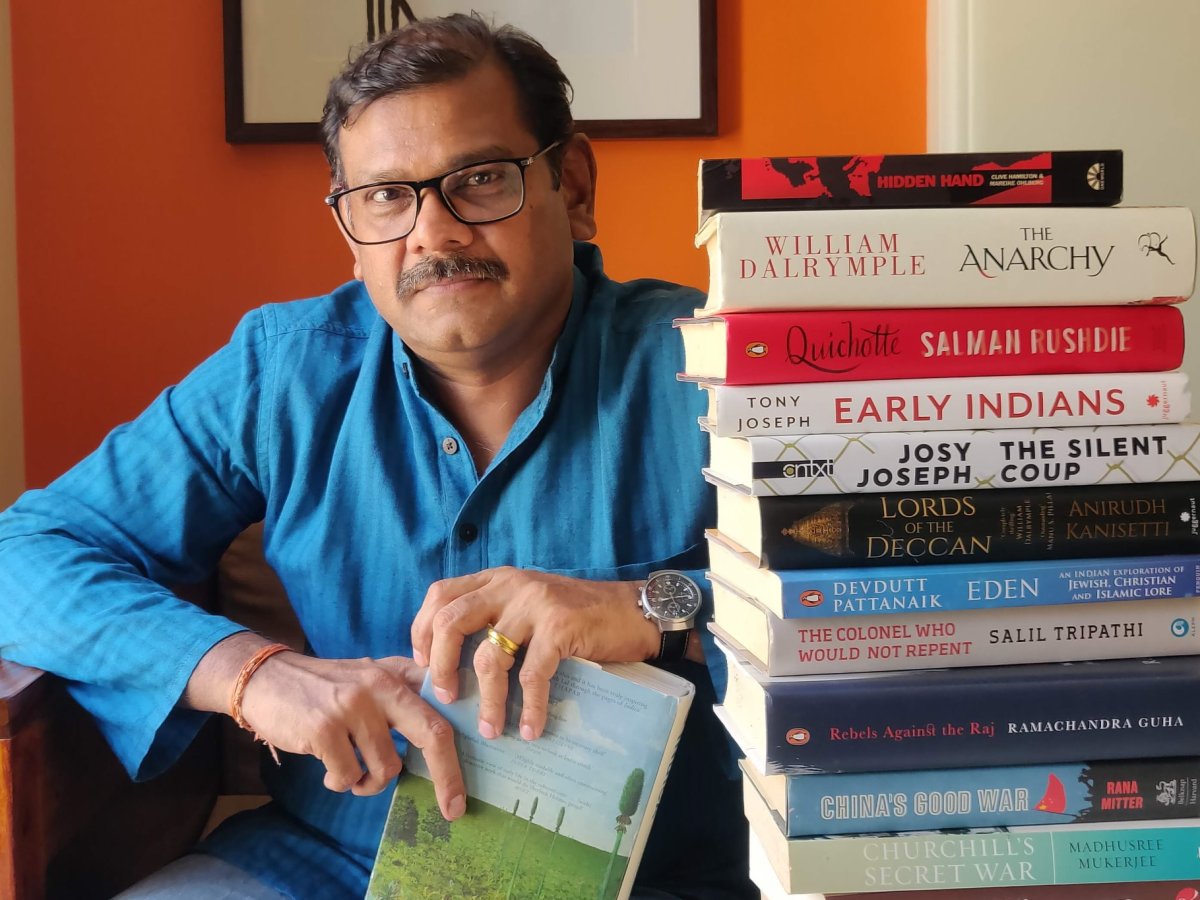
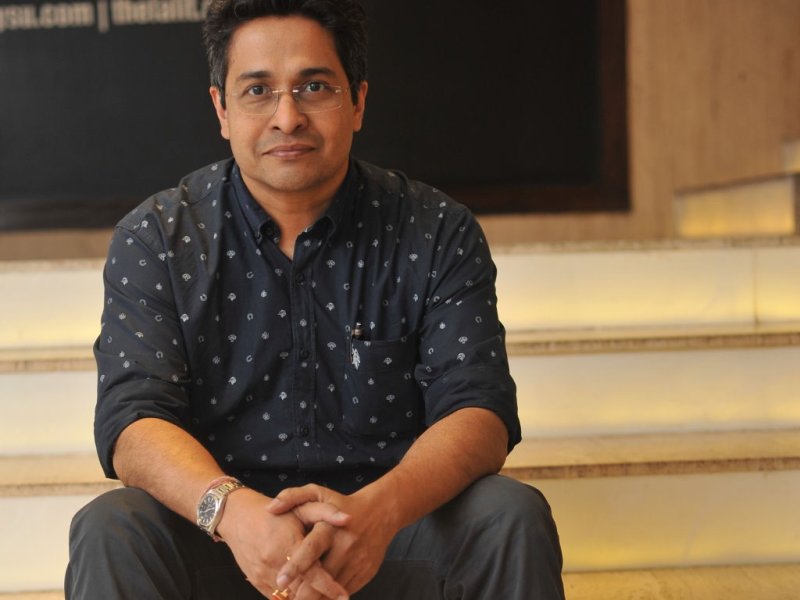
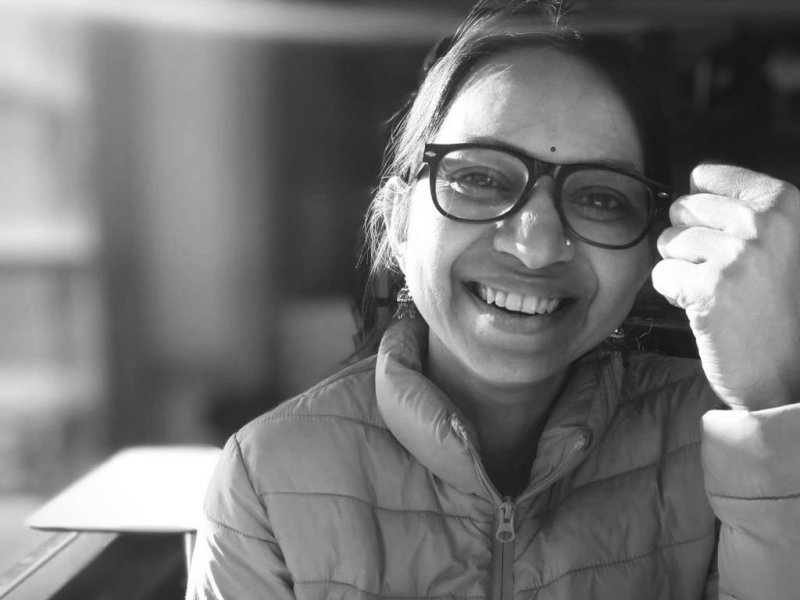
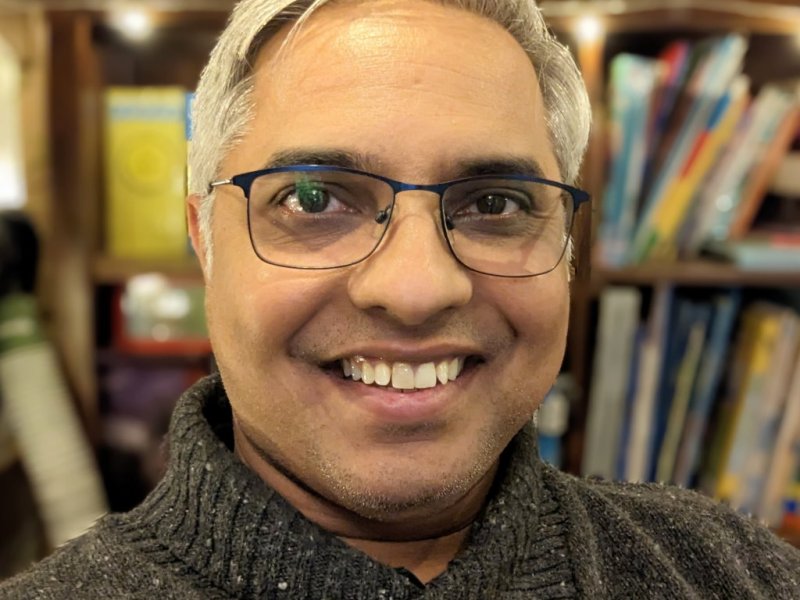
One response to “My Life With Books: Vaishali Dinakaran”
I enjoyed the article thoroughly.
Despite internet , books will continue to survive… not just survive, but thrive.
LikeLike